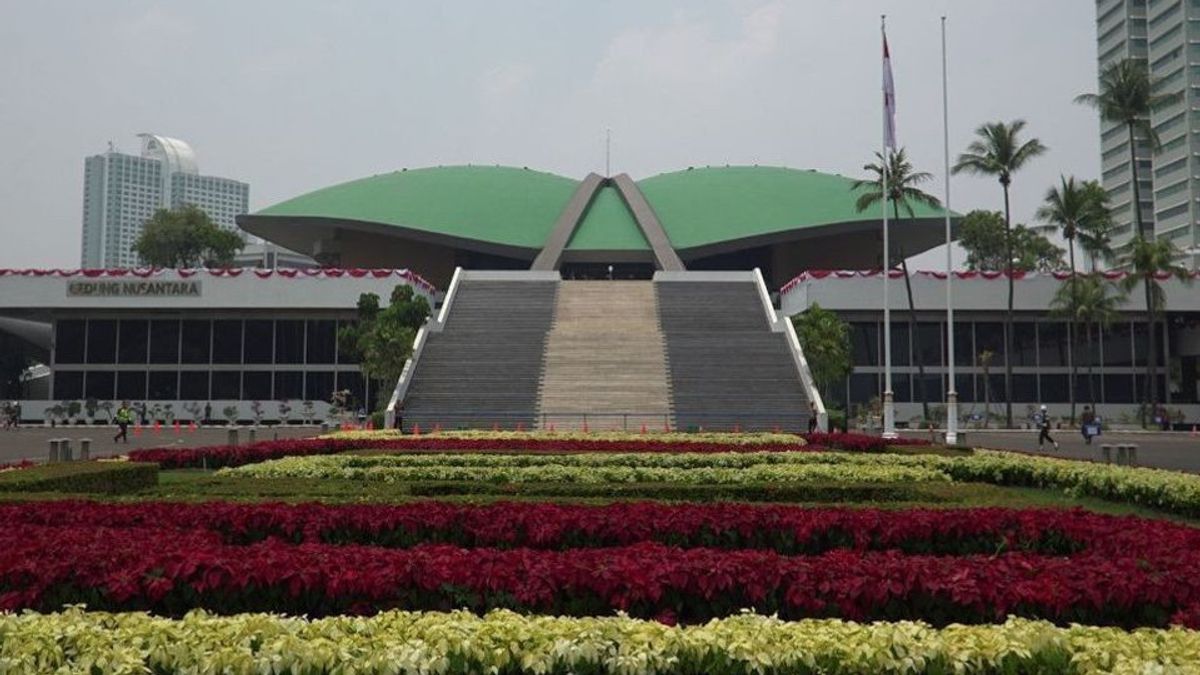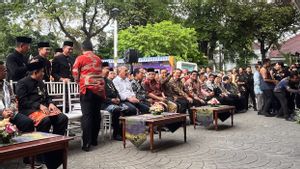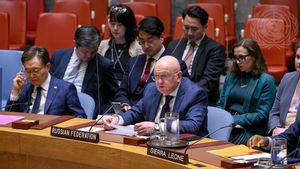JAKARTA - Member of Commission III of the Indonesian House of Representatives Nasir Djamil highlighted the case of raping brothers and sisters committed by 13 people for one year in Purworejo, Central Java. Nasir asked the Central Java Police (Central Java) who is currently handling his case to implement Law No. 12 of 2022 concerning the Crime of Sexual Violence (TPKS) which ensures that there is no peace between the victim and the perpetrator.
"In a case involving minors and their settlement has been delayed for up to a year, law enforcement officials must show their seriousness in ensuring that the rights of victims are fulfilled," said Nasir Djamil in his statement, Saturday, November 2.
As is known, cases of alleged rape of brothers and sisters with the initials DSA (15) and KSH (17) in Purworejo Regency have attracted public attention. The two of them were raped by 13 of their neighboring men within a year in different times and conditions.
Two of the 13 perpetrators were raided by residents when they were about to rape the victim. Even though they have been caught red-handed, the perpetrator was not punished after raping his sister in Purworejo.
As a result of this series of rapes, DSA finally became pregnant and has now given birth. The case was not handled by the Purworejo Police because the families of the victims and perpetrators resolved the case amicably, facilitated by the local village government.
After this case went viral, the Central Java Police finally took over the case and have now examined the witnesses but have not yet named a suspect.
Therefore, Nasir hopes that law enforcement officials can seriously investigate the case. According to Nasir, from the start law enforcement officers (APH) used the TPKS Law which regulates that there should be no peace in cases of sexual violence.
"Even if the agreement is possible, the victim and perpetrator will finally get married, the case must continue," he said.
Nasir also reminded that anyone who commits coercion of marriage between the victim and the perpetrator can be criminally charged. This follows the confession of the victim who stated that she was forced to marry in a serial manner with one of the perpetrators of rape because she was pregnant.
"The threat of punishment for those who force victims of sexual violence to marry the perpetrators can be up to 9 years in prison," said Nasir.
Nasir said that the application of Law Number 35 of 2014 concerning Child Protection alone was not enough in this case. Moreover, the victim was also force-fed with alcohol, dragged, abused and forced to have intercourse.
There is also a threat from the perpetrators to distribute their sexual videos so that the victim feels afraid. In addition, the victim also admitted that he had been held captive for several days when he was raped, until he was sold by the perpetrator to another party.
"There are so many articles that can be applied. Apart from TPKS and child protection, it could also be about the Crime of Trafficking in Persons (TPPO), kidnapping, threats, persecution, and so on," said Nasir.
Therefore, the member of the Commission in the DPR in charge of law enforcement affairs asked the Central Java Police to evaluate and conduct a detailed investigation in handling the rape case of the brothers and sisters. Nasir stated that there must be justice for the two victims.
SEE ALSO:
"The law must take sides with victims of sexual violence. We ask for the seriousness of law enforcers because the case has also been protracted for a long time," concluded the legislator from the Aceh II electoral district.
The rules regarding this matter are contained in Article 10 paragraphs (1) and (2) of the TPKS Law, the following reads:
Everyone against the law forces, places a person under his power or another person, or abuses his power to commit or allow marriage with him or with someone else, to be convicted of coercion of marriage, with a maximum imprisonment of 9 (nine) years and/or a maximum fine of Rp. 200,000.00.00 (two hundred million rupiah).
Including the coercion of marriage as referred to in paragraph (1): a. child marriage; b. forced marriage in the name of cultural practice; or c. forced marriage of the victim with the perpetrator of rape.
Meanwhile, the rules regarding the inability of peace between victims and perpetrators of sexual violence are regulated in Article 23 of the TPKS Law which contains:
Article 23 of the Case of Sexual Violence cannot be resolved outside the judicial process, except for child perpetrators as regulated in the law.
The English, Chinese, Japanese, Arabic, and French versions are automatically generated by the AI. So there may still be inaccuracies in translating, please always see Indonesian as our main language. (system supported by DigitalSiber.id)
















